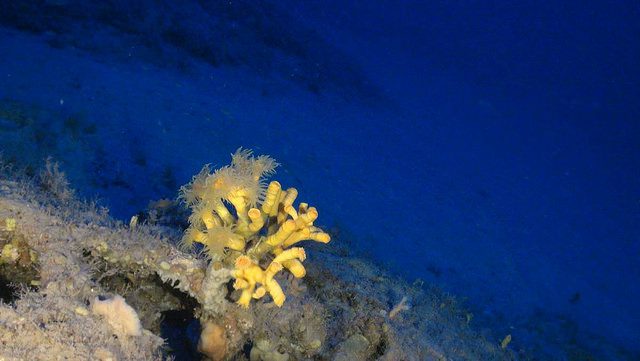June 17, 2015
A glimmer of hope for protection of Vulnerable Marine Ecosystems (VMEs) in the Mediterranean Sea
As we know, our marine world is full of acronyms, so it is helpful sometimes to shed light on particularly relevant ones to Oceana’s conservation work, such as “VMEs”. This stands for Vulnerable Marine Ecosystems, and describes deep-sea ecosystems that are unique, rare, fragile and are particularly sensitive to the impacts of fishing activities, such as cold-water hard corals, soft corals, and their relatives; sponge aggregations; mud- and sand-emergent fauna, etc. VMEs are commonly found in biodiversity-rich and productive places such as seamounts, canyons, trenches, and hydrothermal vents, where other marine species gather to feed, reproduce, grow to maturity, or to take shelter. For Oceana, VMEs are therefore a key category of habitats that should be protected.
The good news is that since 2004, the UNGA (United Nations General Assembly) has recognised the need to focus special attention on these fragile habitats, and has continually called on States and RFMOs (Regional Fisheries Management Organisations) to take measures to protect them from deep-sea fishing activities, by adopting prior impact assessments, identifying places where VMEs occur and protecting them from negative impacts of fishing, or developing emergency protocols for boats that inadvertently catch VMEs. The GFCM (General Fisheries Commission for the Mediterranean) has adopted some preventive measures already, such as the ban on bottom-fishing below 1000 depths, offering protection to the deepest habitats of the Mediterranean basin. However, unlike some other RFMOs, the GFCM has not taken steps to protect VMEs in waters above 1000 m depth in the Mediterranean and Black Seas. For example, deep-sea coral reefs remain unprotected from bottom fishing impacts – for instance from red shrimp fisheries – both in areas that are already known and in other areas where they are still being discovered.
Last week, Oceana participated in the Second meeting of the GFCM Working group on MPAs, in Tunis, Tunisia. At the meeting, FAO recalled the existing UNGA obligations that relate to VMEs protection and presented their online VME database. Oceana was encouraged that GFCM is interested in moving forwards with VME considerations, and made specific recommendations on priority actions that should be considered, in order to fulfil obligations under the UN General Assembly resolutions. By the end of 2015, FAO will present a new report on the status of VMEs protection globally, and this should also help further VME protection within GFCM fisheries, and beyond.

© OCEANA

